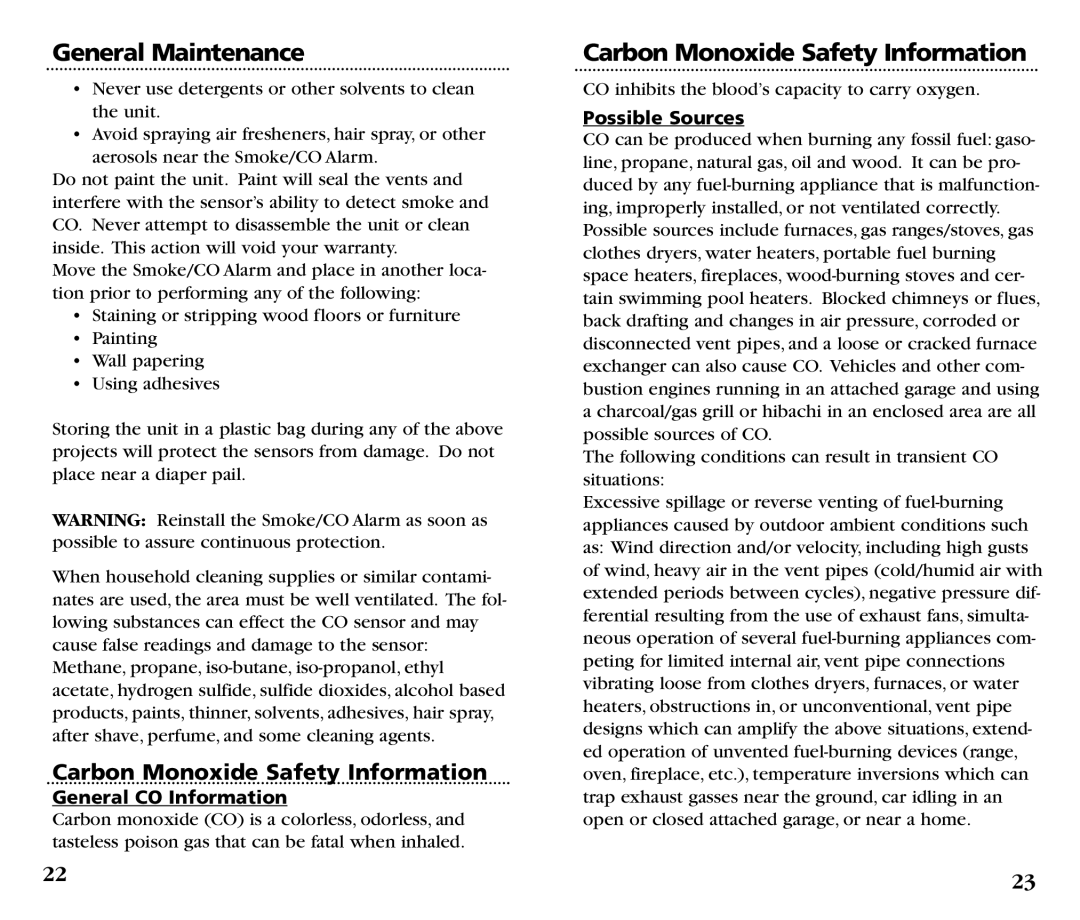KN-COSM-B specifications
The Kidde KN-COSM-B is a sophisticated combination of a smoke detector and carbon monoxide (CO) alarm, designed to enhance safety in residential and commercial spaces. This dual-function device provides peace of mind by safeguarding against two of the most dangerous threats in any environment: fire and carbon monoxide poisoning.One of the most notable features of the Kidde KN-COSM-B is its advanced photoelectric smoke sensing technology. This type of sensor is known for its quick response time to smoldering fires, which often generate large amounts of smoke without visible flames. This means that the device can alert users to potential fire hazards before they escalate, providing critical extra minutes for evacuation.
In addition to its smoke detection capabilities, the Kidde KN-COSM-B is also equipped with a reliable electrochemical CO sensor. Carbon monoxide is a colorless, odorless gas that can be produced by common household appliances like furnaces, water heaters, and gas stoves. The alarm features a loud 85-decibel warning signal, ensuring that occupants are alerted to the presence of CO promptly, allowing for immediate action to be taken.
The device is powered by a sealed lithium battery, which eliminates the need for constant battery changes, a feature that enhances its reliability. The battery has a lifespan of up to 10 years, aligning with the recommended replacement interval for smoke and CO alarms.
User-friendly features make the Kidde KN-COSM-B even more appealing. The unit includes a “test/reset” button, allowing users to easily verify the functionality of the alarm or silence it if necessary. It also features an end-of-life warning that alerts users when it's time to replace the unit, ensuring that safety remains uncompromised.
Another noteworthy characteristic is its sleek, compact design, which allows for seamless integration into various home décor styles without being intrusive. The device can be mounted on walls or ceilings, providing versatility in installation.
Overall, the Kidde KN-COSM-B stands out as a reliable solution for protecting families and properties from the dangers of fire and carbon monoxide. Its comprehensive features, coupled with user-friendly technology, make it an essential addition to any safety-conscious household.

